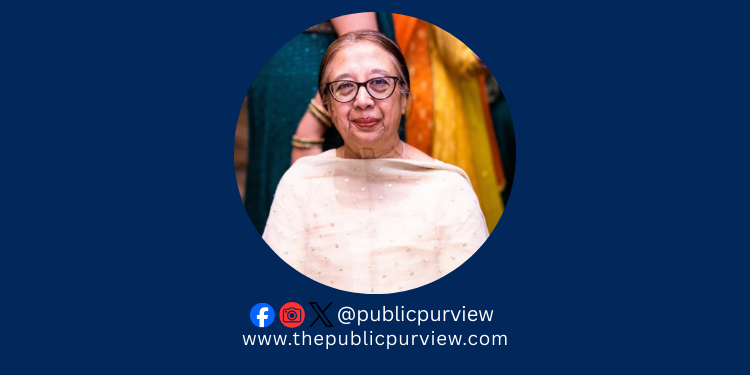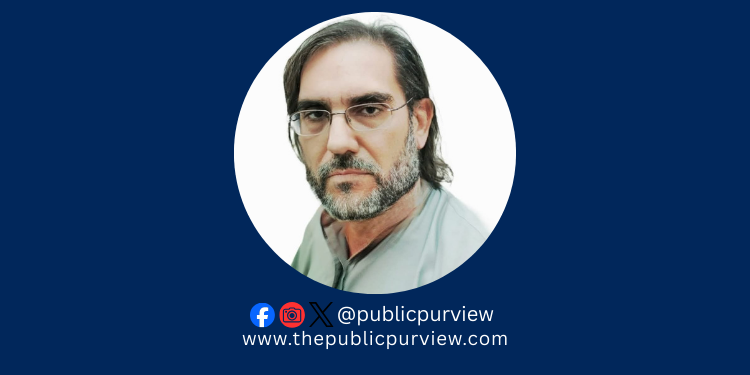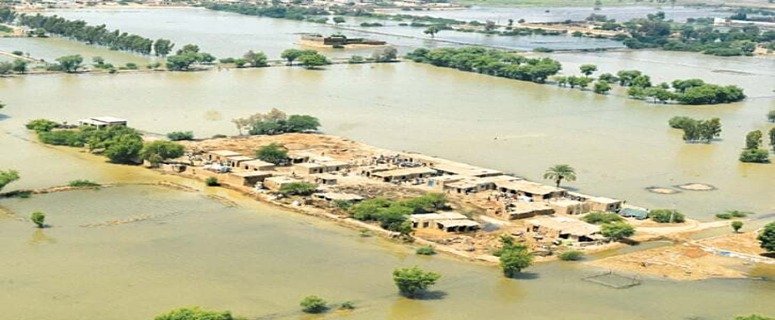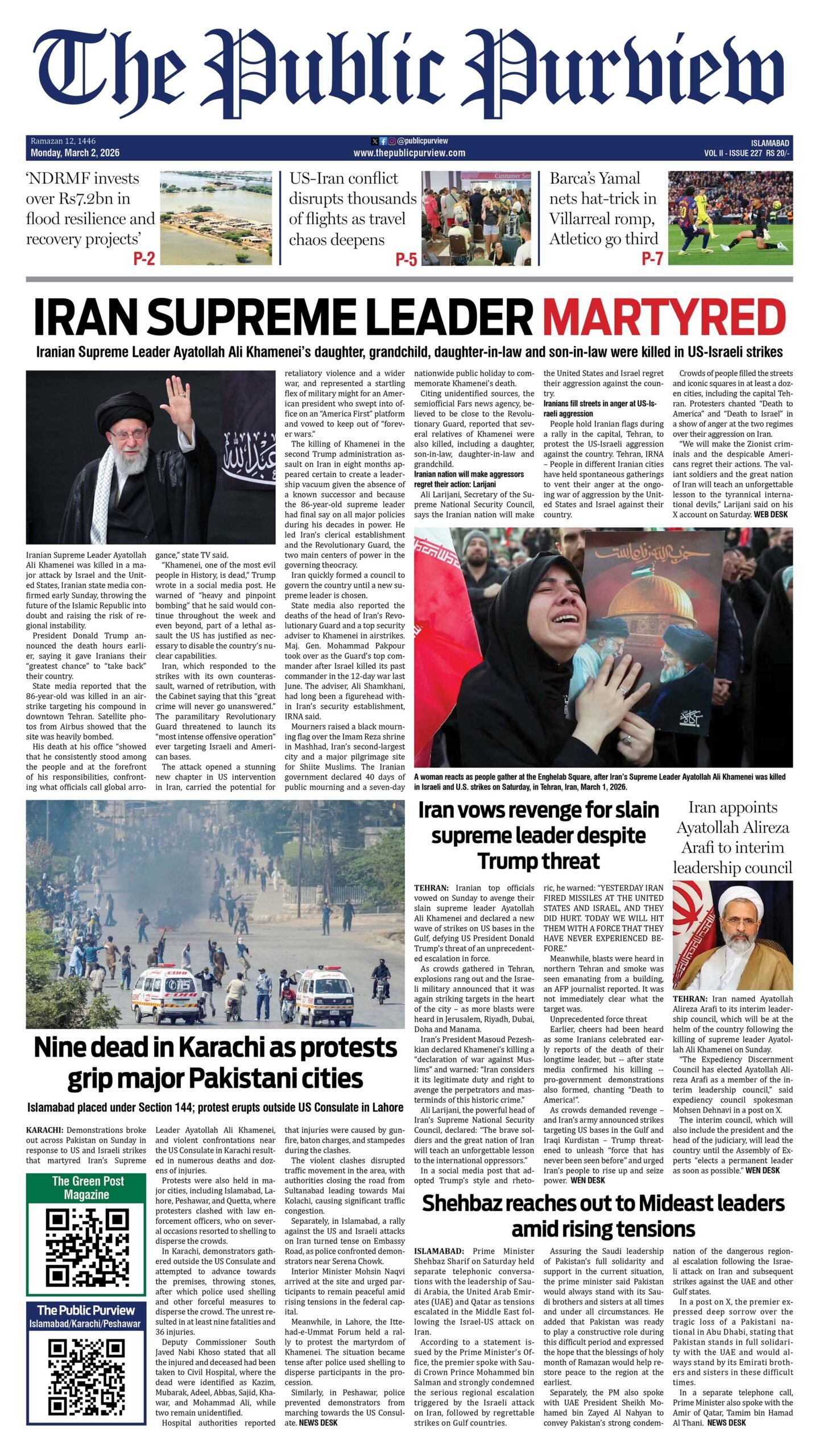By: Omay Aimen
The story of Afghanistan is one that swings between conquest and collapse, between the dreams of sovereignty and the burdens of survival. It is a land where geography has never been a blessing and history has seldom been kind. Each generation of Afghans has inherited not just the mountains and valleys of their homeland, but also the scars of battles they never started. Their destiny has repeatedly been written by outsiders, empires, superpowers, and regional players, while the Afghan people remain spectators to decisions that reshape their lives. The question now looms larger than ever: will Afghanistan forever remain a playground for foreign agendas, a victim of perpetual violence, and a nation in constant search of peace and identity?
A Turbulent Mix of History, Geography, and Power Politics
Afghanistan’s predicament lies in its turbulent mix of history, geography, and power politics. For centuries, it has been a corridor for invasions and rivalries, a crossroad that has connected empires but never found stability within itself. The modern state continues to wrestle with internal divisions and external manipulations. The ordinary Afghan, who seeks nothing more than dignity, education, and economic opportunity, finds himself crushed between ideological extremes and political gamesmanship. Poverty persists, borders remain fragile, and the social fabric has thinned under decades of displacement and war. The recurring cycles of migration, drug trade, and radicalization are not mere symptoms but results of a system where governance is absent and survival dictates every choice.
A Lost Vision of Regional Unity
Historically, Pakistan and Afghanistan once shared an ambitious vision, a possible confederation to resolve ethnic and border disputes and to jointly harness their cultural and economic potential. Yet, that aspiration vanished under the weight of coups, foreign interventions, and mistrust. The Soviet invasion of 1979 changed everything. Pakistan, seeing the Red Army as an existential threat, forged a strategic alliance with the United States and Saudi Arabia, turning into the principal base for the anti-Soviet jihad. Driven by religious and ideological fervor, Pakistan hosted millions of refugees, trained resistance fighters, and supplied arms and logistics.
Victory Without Peace
The victory was monumental, the Soviets retreated across the Amu Darya by 1989, but peace never followed. The abrupt U.S. withdrawal left behind a fragmented Afghanistan and an embittered Pakistan. Militancy that once served a geopolitical purpose turned inward, breeding extremism and instability across the border.
The Taliban Gamble and Its Fallout
The 1990s brought another devastating phase. As Afghanistan plunged into civil war, Pakistan made a strategic gamble by supporting the Taliban, seeking stability through a single dominant force. What appeared a short-term success soon turned into a long-term disaster. After 9/11, the same Taliban became global pariahs, and Pakistan faced unprecedented diplomatic and security isolation. The U.S.-led war in Afghanistan (2001–2021) reshaped regional dynamics once again.
A Delicate Balancing Act
Pakistan attempted a delicate balancing act, cooperating with the U.S. while maintaining limited engagement with the Taliban to preserve its influence in Kabul. It kept Pakistan relevant but came at a heavy price: economic strain, internal divisions, and a devastating wave of terrorism. The war ended not with peace but with exhaustion. When the U.S. finally withdrew in August 2021, it left behind a hollowed state and a triumphant Taliban, victorious militarily yet unprepared politically.
Isolation and Theocratic Control
Today, Afghanistan stands isolated. The Taliban regime remains estranged from the world, reluctant to adopt international norms or build inclusive governance. Their reliance on strict theocratic control has alienated not just the world but also sections of their own population. The promise of liberation from foreign occupation has brought neither economic revival nor social harmony. If Afghanistan continues to alienate its neighbours, particularly Pakistan, Iran, and the Central Asian republics, it risks economic strangulation. Trade routes, investment opportunities, and cross-border connectivity projects like CASA-1000 and TAPI cannot move forward under uncertainty.
Governance Over Guns
No state can thrive in isolation; legitimacy in the modern world is not earned through the barrel of a gun but through responsible governance and respect for human rights. The Taliban must evolve from a militant movement into a governing entity that can balance faith with functionality and sovereignty with cooperation. Without this transition, Afghanistan will remain trapped in the same loop of insurgencies, sanctions, and humanitarian crises.
Time to Reset
It is time for Afghanistan to reset its political and economic course. Its leaders must realize that constant confrontation leads only to ruin. The country’s future depends on reconciliation at home and cooperation abroad. Regional partnership is essential, not optional. Pakistan, after decades of bearing Afghanistan’s instability, must now pursue pragmatic engagement focused on border security, counterterrorism, and trade.
Reclaiming Destiny
The Afghan people, too, must reclaim control of their destiny, choosing education over extremism and unity over division. Only an inclusive and accountable government can break the cycle of dependency, curb narcotics, and build a society grounded in peace and progress.
A Vision for the Future
Afghanistan’s greatest enemy has never been any one power, it has been the absence of a vision for its future. The world owes the Afghan people more than pity; it owes them partnership and patience. The Taliban owe their citizens more than promises; they owe them performance. And Pakistan owes itself a lesson from history, to remain a neighbour that seeks stability, not control. The fate of this region will be determined not by wars but by wisdom, not by ideology but by integration.
A Bridge Between South and Central Asia
If Kabul learns to engage rather than exclude, and if its people are allowed to breathe beyond the boundaries of fear, Afghanistan can still become the bridge between South and Central Asia it was always meant to be. For a nation that has endured the world’s longest war, perhaps the next chapter should finally be about peace that lasts longer than the silence between battles.
Read more expert opinions here: https://thepublicpurview.com/category/blog/
For climate-related stories, visit: The Green Post







 Today's E-Paper
Today's E-Paper